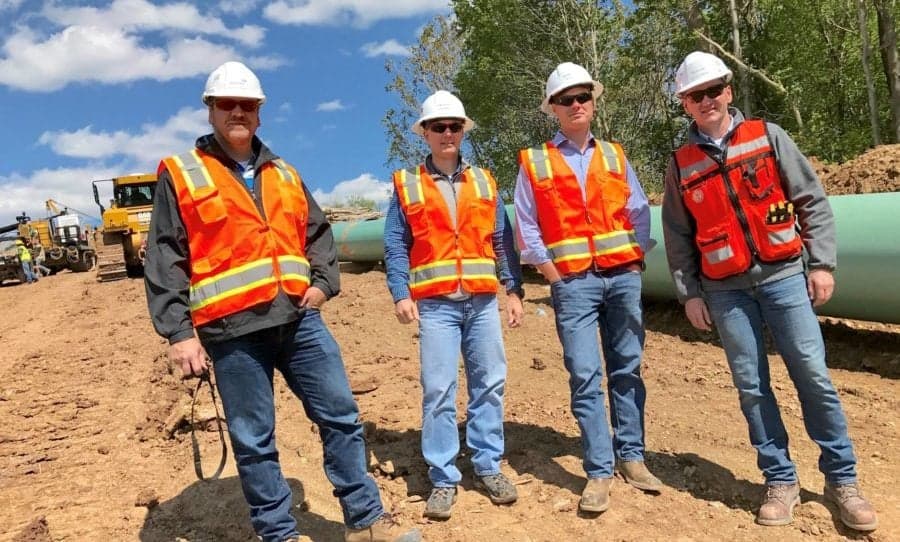The proposed Huckleberry camp would accommodate approximately 800 workers for the Coastal GasLink Pipeline project in British Columbia. TransCanada says an estimated 2,000 to 2,500 “high-quality, well-paying jobs” would be created across the region during the four-year construction period.
Although TransCanada recently abandoned its plans to build a workers’ camp near Burns Lake, plans to build a camp south of Houston, British Columbia, are still on track.
The proposed Huckleberry camp would accommodate approximately 800 workers to support the construction needs of the Coastal GasLink Pipeline project.
“We are working with camp contractors to finalize requirements,” Terry Cunha, a spokesman for TransCanada, told local news outlet Houston Today. “We are currently finalizing our camp commercial contracts to be in place in the coming months.”
The Huckleberry camp would be located approximately 28 km south of Houston, BC. The camp would include separate quarters for men and women, telecommunications, games rooms, laundry facilities and exercise facilities. Although some additional services would require workers to travel into Houston occasionally, many of the amenities would be found on site, including camp catering and medical services.
TransCanada says an estimated 2,000 to 2,500 “high-quality, well-paying jobs” would be created across the region during Coastal GasLink’s four-year construction period. A majority of employment and contracting opportunities would be provided through TransCanada’s prime contractors.
“Once those [prime contractors] are selected, we will notify communities and tour the region to promote local contracting and employment,” explained Jacquelynn Benson, a spokesperson for TransCanada earlier this year.
The BC Environment Assessment Office has recently approved Coastal GasLink’s November 2017 alternate route amendment application to add an alternate route option southeast of Houston. According to Benson, the new route was proposed after the company gathered feedback from Aboriginal groups in the region.
“After extensive consultation with local communities and Aboriginal groups, the south of Houston alternate route was identified to help minimize potential adverse effects on traditional and cultural land use on a portion of the current route,” said Benson last November.
The Coastal GasLink Pipeline project involves the construction and operation of an approximately 650-km natural gas pipeline from near Dawson Creek to near Kitimat.
The pipeline proponent received its environmental assessment certificate in October 2014 and has all the major permits it needs to start construction. However, due to the challenges of the current global energy market, LNG Canada announced in July 2016 that their joint venture participants needed more time prior to making a final investment decision on their proposed export facility near Kitimat.
As a result, construction of the Coastal GasLink Pipeline, which would supply gas to their project, has been delayed.
LNG Canada is expected to make a final investment decision later this year.
https://www.facebook.com/pg/TransCanadaCorporation/

